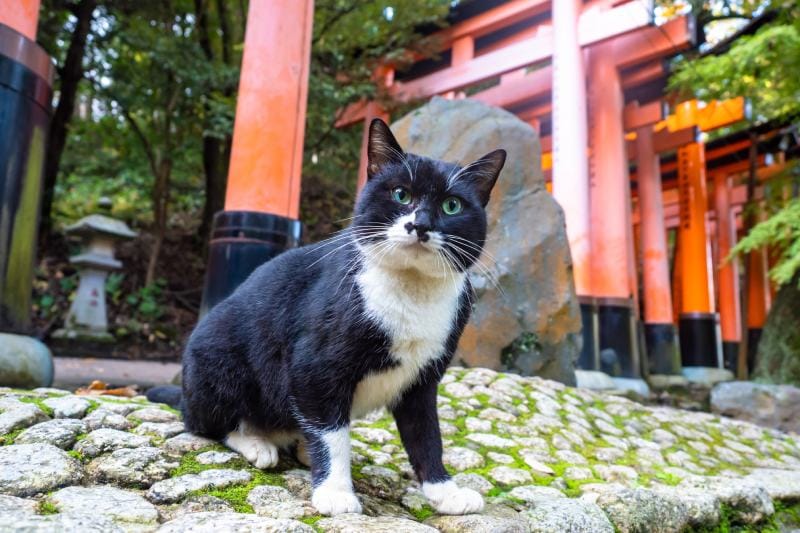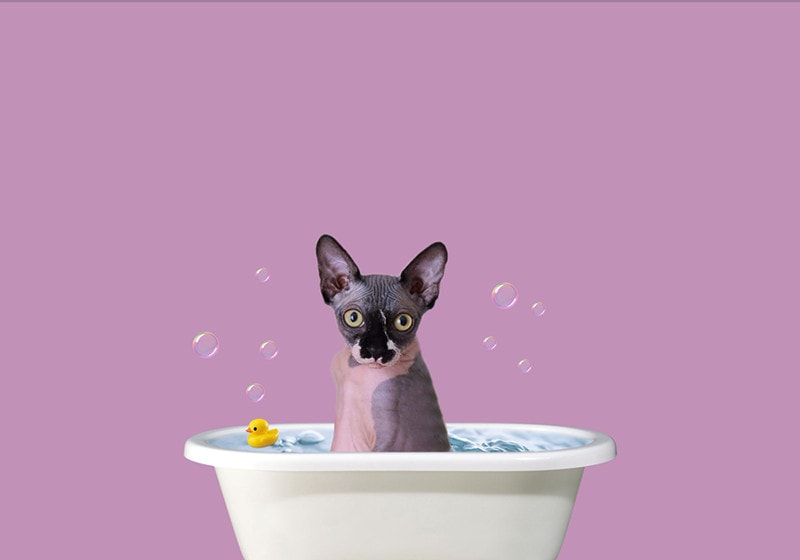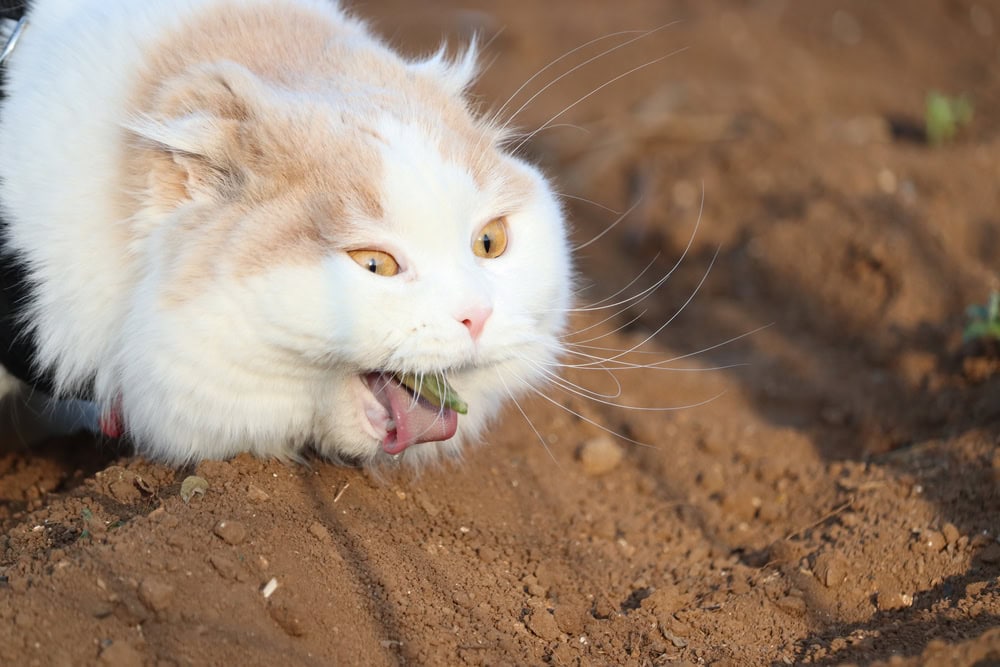10 Great Plants to Keep Cats Away (With Pictures)
Updated on
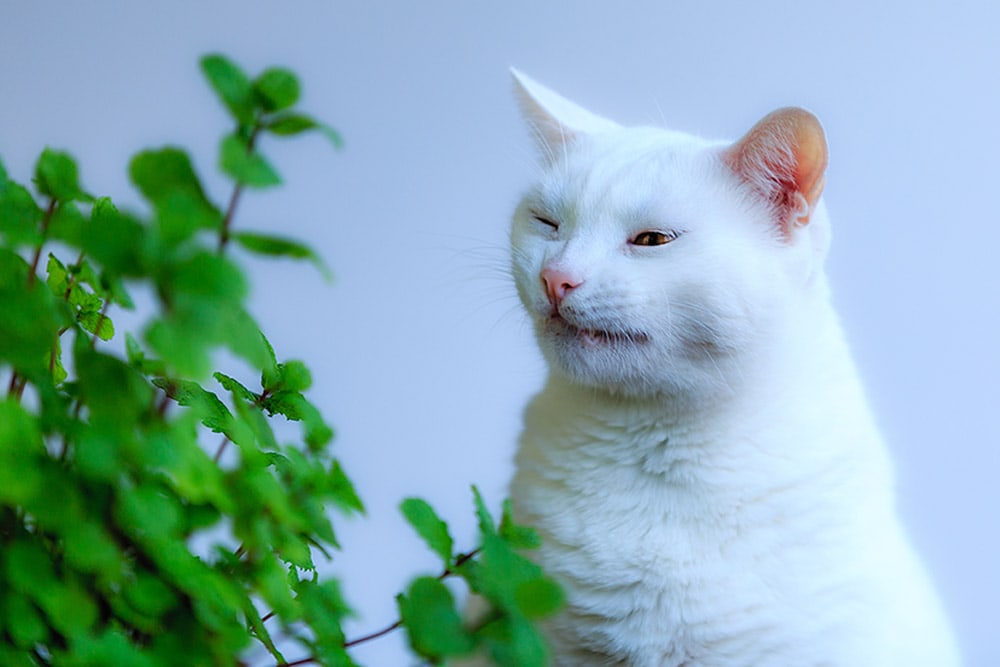
Cats are stealthy and athletic creatures. They excel at finding small spaces and climbing high places. If you have cats, you’ve probably witnessed their natural climbing skills in action. This can be a problem if you live in an area where there are outdoor cats, as they can easily invade your garden.
Fortunately, there are natural (and often beautiful) solutions to keep kitties away from your precious green oasis. From fragrant lavender to gorgeous geraniums, here are the 10 best plants to keep cats away.
The 10 Great Plants to Keep Cats Away
1. Rosemary
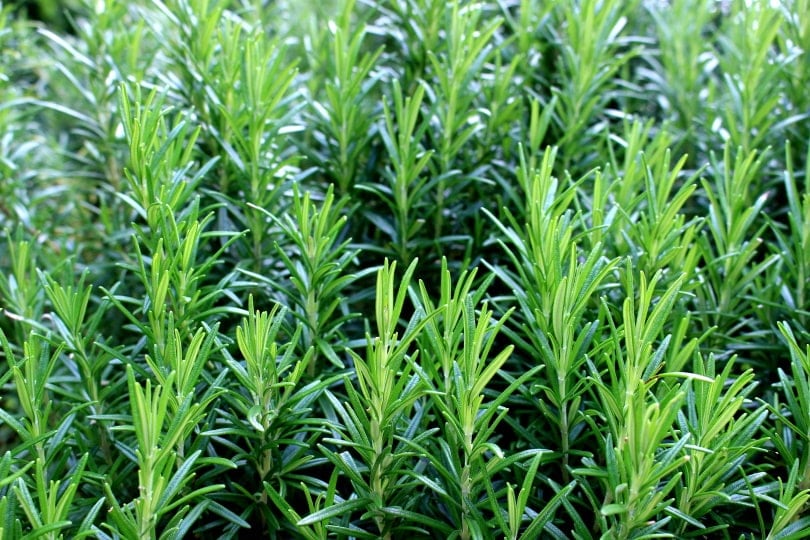
| Scientific Name: | Rosmarinus officinalis |
| USDA Hardiness Zones : | 7–9 |
| Sun Exposure: | Full sun/partial shade |
| Soil Type: | Well-drained, loamy, slightly acidic soil |
Rosemary is a perennial shrub with an aromatic scent that is often used to keep hawks, crows, and other birds away. When used indoors, rosemary can be planted in hanging baskets, windowsills, or near the door to keep birds out of the house. The shrub can grow up to 2 feet tall, and its aromatic leaves repel many pests and have antiviral and antifungal properties. So, if cats enter your garden and find this herb, they will often avoid both the smell and taste of rosemary, making it a safe option for keeping felines out of your yard.
Rosemary can be easily found in your local garden store or grocery store. It can be planted outdoors in containers or indoors as a houseplant. Plant rosemary in a sunny area where it will receive at least 6 hours of direct sunlight each day. When growing indoors, rosemary can be grown in an unheated room but must be kept indoors during the winter months.
2. Common Rue
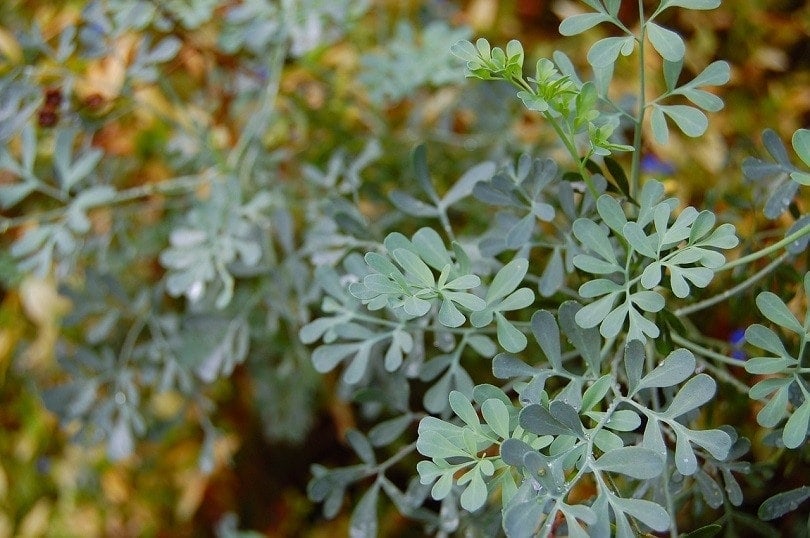
| Scientific Name: | Ruta graveolens |
| USDA Hardiness Zones : | 3–11 |
| Sun Exposure: | Full sun/light shade |
| Soil Type: | Dry or moist soil and can tolerate drought |
Common rue is a plant that can form a 2.5-foot-tall bush with bluish green foliage that is aromatic and unpleasant for cats, which carefully avoid it. The sap of this shrub is also highly irritating, so kitties prefer to circumvent it than touch it! If you plant it in your vegetable garden, it will protect seedlings and recent plantations from the onslaught of furtive felines.
This evergreen shrub prefers rather calcareous drained soils and sunny exposure, tolerates both drought and cold, and requires only limited maintenance. Be careful, however, if you have young children because this plant can be toxic if ingested.
3. Lavender
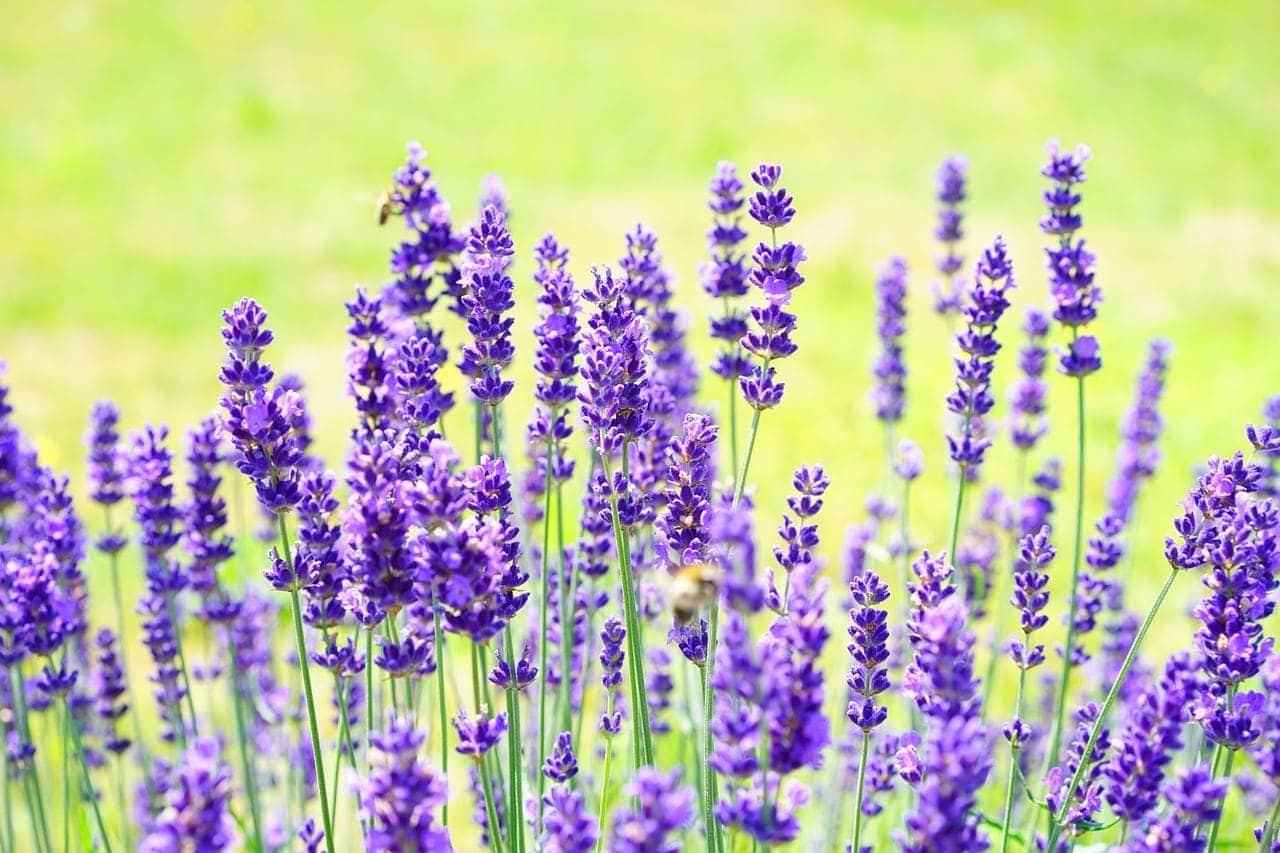
| Scientific Name: | Lavandula varieties |
| USDA Hardiness Zones : | 5–9 |
| Sun Exposure: | Full sun |
| Soil Type: | Low to moderately fertile soils |
Lavender is a perennial shrub that has long been used as a natural remedy for numerous ailments. It’s also a great way to keep cats away from your home, as it has a strong scent that many felines don’t like. Lavender is easily found in your local grocery store. It can be grown indoors or outdoors. When grown indoors, it should be near a sunny window where it will receive at least 6 hours of direct sunlight each day. When grown outdoors, lavender prefers full sun and can be grown in a well-drained container. In order to keep the herb growing, it should be watered approximately once every 3 days.
4. Pennyroyal

| Scientific Name: | Mentha pulegium |
| USDA Hardiness Zones : | 5–9 |
| Sun Exposure: | Full sun/partial shade |
| Soil Type: | Moist but well-drained |
Pennyroyal is an herb with various uses, including the ability to keep cats away from your garden. Indeed, it is an aromatic herb with a strong smell of mint, which cats abhor. You can plant pennyroyal all around your garden to protect it from feline intruders.
5. Lemon Thyme

| Scientific Name: | Thymus citriodorus |
| USDA Hardiness Zones : | 5–9 |
| Sun Exposure: | Full sun |
| Soil Type: | Dry to medium well-drained soil |
Lemon thyme is a citrus plant that belongs to the Lamiaceae family. It is native to Asia, but it can be found in other parts of the world. It can be used for a few different things, including medicinal purposes and as an ornamental plant. Lemon thyme is also great for keeping cats out of the garden because of its strong citrus scent.
6. Lemongrass
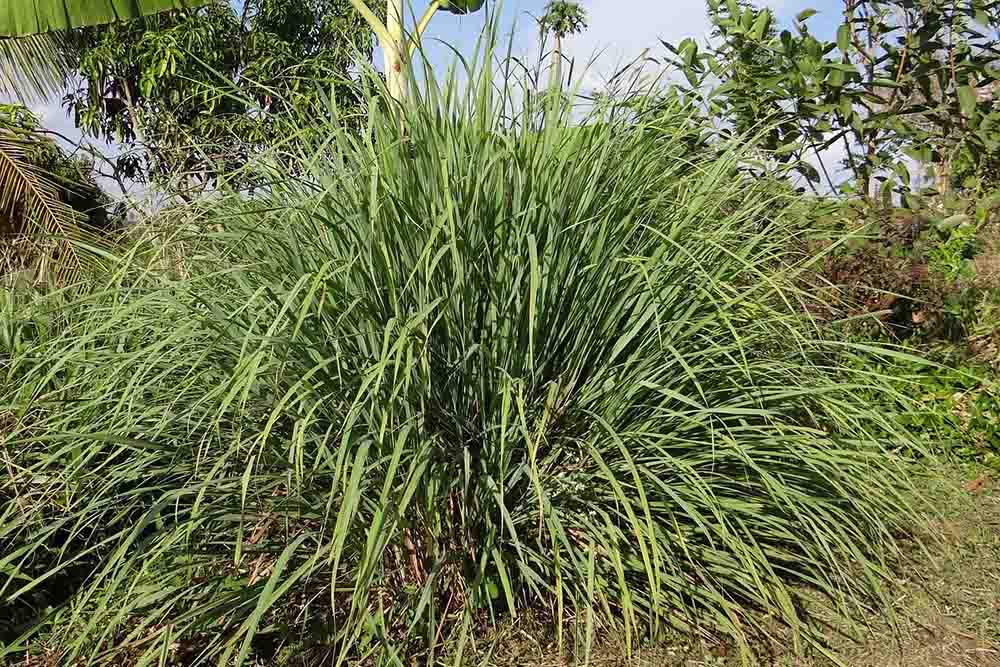
| Scientific Name: | Cymbopogon citratus |
| USDA Hardiness Zones : | 9–10 |
| Sun Exposure: | Full sun |
| Soil Type: | Rich and loamy soil |
Lemongrass is a popular herb used in Asian cultures to keep cats away from gardens. Like lemon thyme, it’s a pungent herb that gives off a fresh lemon scent. It can be planted in pots indoors or outdoors, as long as it receives plenty of water and the soil is well-drained.
7. Curry Plant
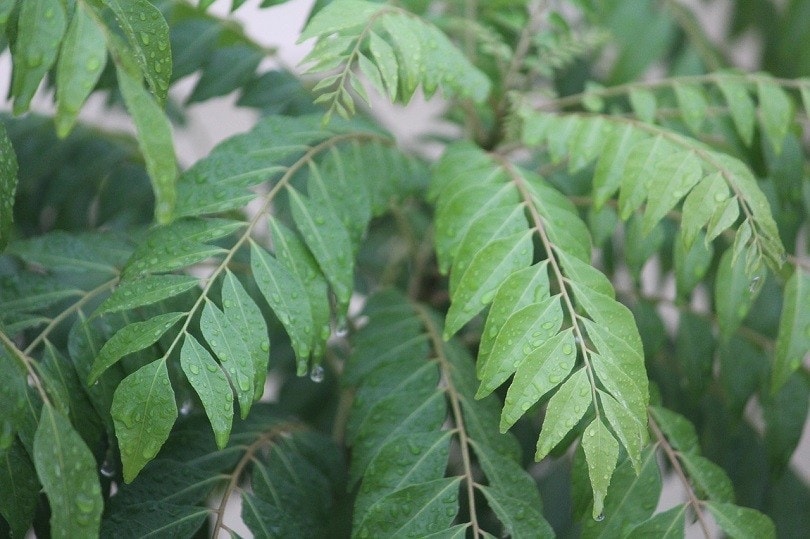
| Scientific Name: | Helichrysum angustifolium |
| USDA Hardiness Zones : | 7–10 |
| Sun Exposure: | Full sun/partial shade |
| Soil Type: | Sandy or loamy soils that are well-drained |
The curry plant is a hardy, low-maintenance shrub that’s easy to grow outdoors. It’s native to South Africa but can be found in all parts of the United States. The curry plant thrives outdoors in warm, sunny areas with average to dry soil. It can tolerate a bit of drought and prefers full sun or partial shade. Indoors, the curry plant is happiest in a bright location with plenty of sunlight. It can also be grown in pots. Another benefit of the curry plant is that it repels cats due to its strong-smelling semi-evergreen leaves. This makes it a great choice for cat lovers who want to keep felines away from their garden!
8. Geranium
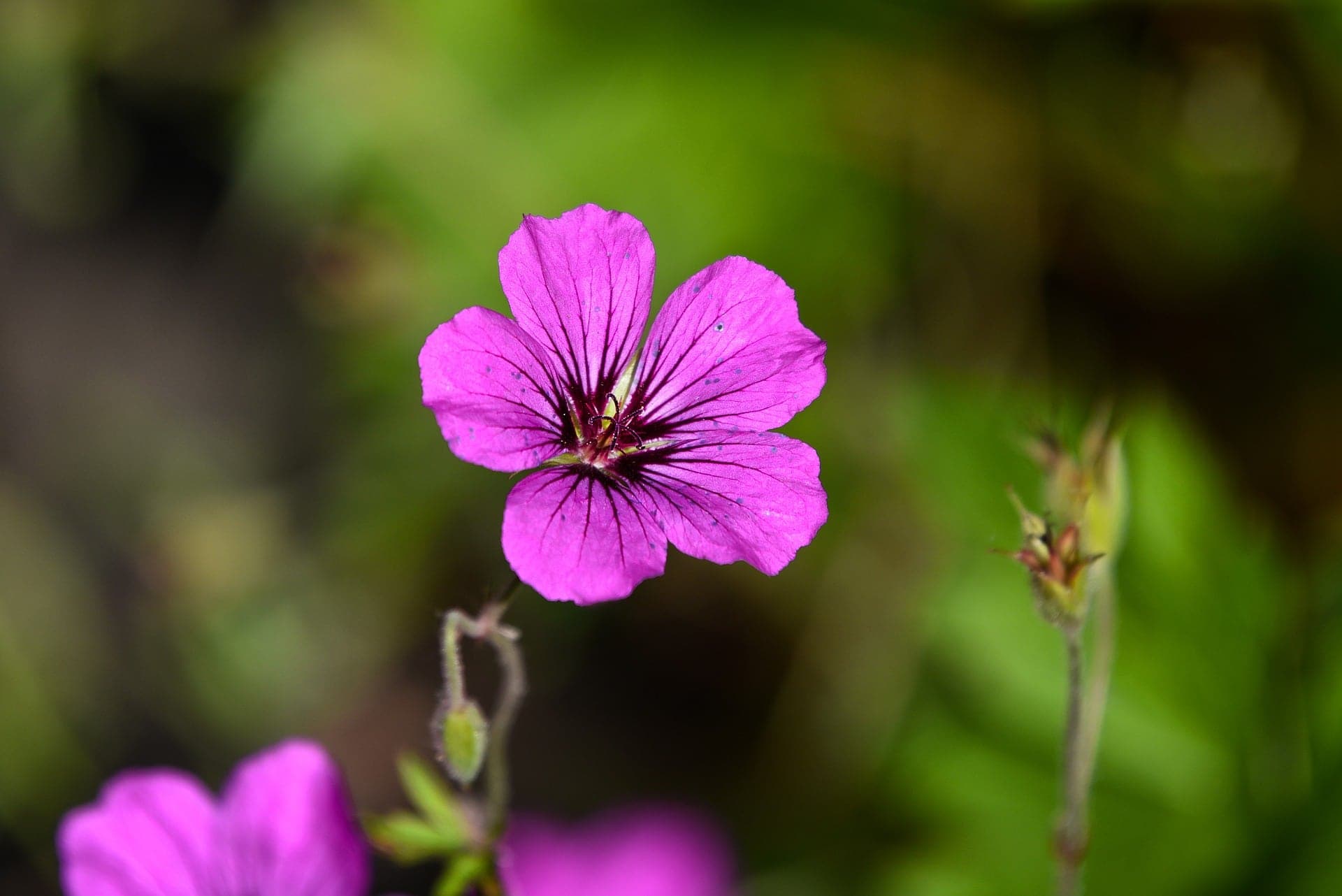
| Scientific Name: | Pelargonium varieties |
| USDA Hardiness Zones : | 3–9 |
| Sun Exposure: | Full sun |
| Soil Type: | Well-drained and sandy soil |
Geraniums are beautiful, fragrant plants that have a variety of uses around the home. It’s also an excellent plant to repel cats due to its strong smell. All varieties of geraniums work well for keeping cats away from your garden, and they’re a feast for the eyes too!
9. Basil
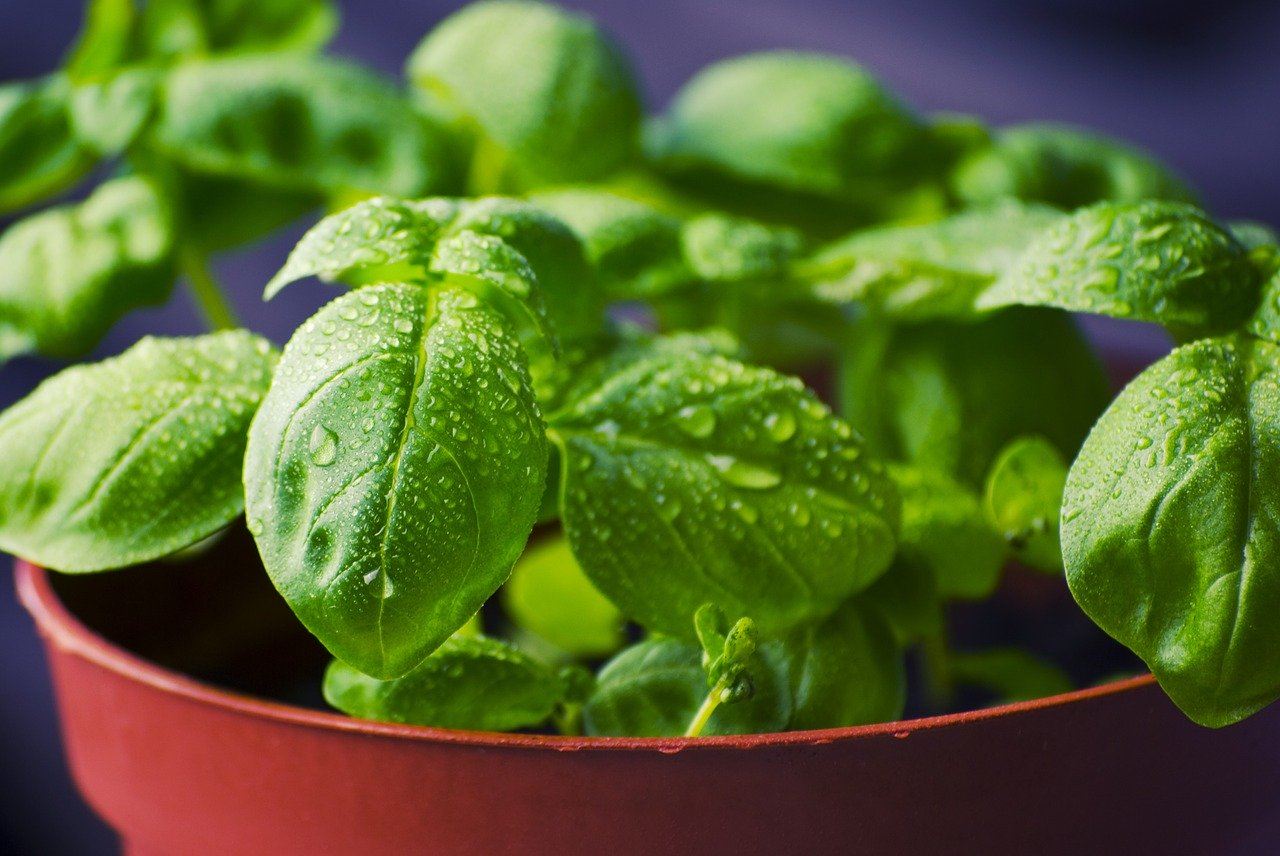
| Scientific Name: | Ocimum basilicum |
| USDA Hardiness Zones : | 10–11 |
| Sun Exposure: | Full sun/partial shade |
| Soil Type: | Well-drained, moist soil |
Basil is a popular and highly aromatic herb to keep cats away from your garden (or kitchen counter)! You can grow basil indoors or outdoors. However, it grows best in full sun and prefers well-drained soil. It can also be grown in a large pot. This herb is easily found at your local grocery store.
10. Scaredy Cat Plant

| Scientific Name: | Coleus canina |
| USDA Hardiness Zones : | 10–11 |
| Sun Exposure: | Full sun/partial shade |
| Soil Type: | Well-drained |
There are many types of plants that are said to keep cats away, but none are as effective as the scaredy cat plant. Indeed, its deep green oval leaves give off a strong smell that cats hate. You can use it as a repellent barrier in your garden, such as around the vegetable patch, in flower beds, or on borders. Its bluish spikes are also magnificent during summer flowering! However, this plant can be tricky to grow and is best grown in a container, but once started, it will keep cats away for many years. You can also plant it in well-drained soil, in partial shade or full sun, and in an area sheltered from the winds because it is not very hardy.
Conclusion
One of the best ways to keep cats from wandering into your garden is to grow the right kind of plants in or around it.
The best plants to keep cats away are those that are attractive and have a strong scent. For example, lemon thyme, basil, and oregano are natural herbs that are great for keeping kittens away — and they have the added benefit of helping you make a great spaghetti sauce!
Featured Image Credit: F_N, Shutterstock

